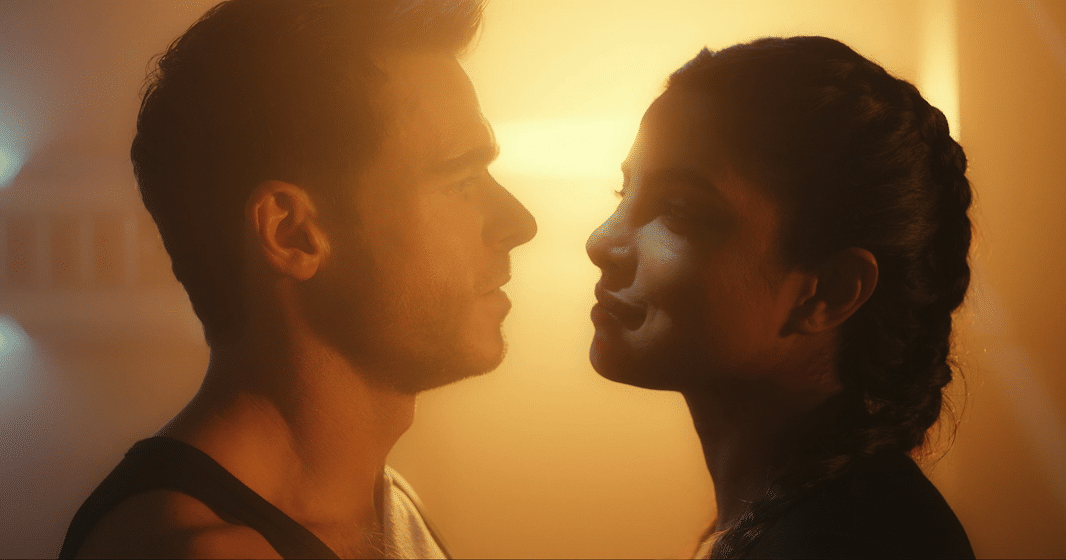Prime Video’s multi-million dollar spy series Citadel is currently the number-one series on the platform worldwide. But despite the record number of watchers, the early reviews aren’t looking good.
On review aggregator site Rotten Tomatoes, the critics consensus says: ‘Citadel spares no expense but still feels underdeveloped, yielding a fairly fun spy caper that nonetheless creaks under the weight of its own exorbitance.’ It’s got 52% on the Tomatometer.
Variety’s Alison Herman sums it up in a scathing review, calling it a ‘business plan’ rather than a TV show.
Even if you aren’t the type to close-read an IMDb page, the origins of Citadel are obvious enough in the execution: a choppy, generic blockbuster-by-numbers with a nine-figure budget you’d never detect from the chintzy CGI.
Alison Herman, Variety
In many ways, Herman is right. Citadel has already been greenlit for season two and optioned for a global franchise, with local versions of the series already under production in Italy and India, and two more planned in Spain and Mexico. With a season one budget of US$300 million, it’s essentially become one of TV’s most expensive gambles, with everything being put on red before the casino even opens.
Read: Cheat sheet: Citadel on Prime Video
Now that the cards have been dealt and the hands shown, viewers are baffled. If this show cost almost as much to make as The Lord of the Rings: The Rings of Power, stars the charismatic Stanley Tucci, Richard Madden and Priyanka Chopra Jonas, and has Marvel’s Russo Brothers producing, why does it look like an overly long ad for a Bvlgari handbag?
Read: The Lord of the Rings: The Rings of Power – nice cake, OK icing
I’ll attempt to breakdown why.
The style of Citadel is nothing new
Mason Kane (Richard Madden), and Nadia Sinh, (Priyanka Chopra Jonas), are two spies employed by an organization called Citadel. However, after a mission goes awry, they both suffer from memory loss. Fast forward eight years, Mason has settled into a tranquil life as a devoted husband and father, unaware of his turbulent history as a spy until he reunites with Citadel manager Bernard (Stanley Tucci).
Comparisons to The Bourne Identity and James Bond are inevitable in the spy-thriller genre, but here it’s definitely warranted. Hovering dangerously close to rip-off territory, Citadel gives us a leading man with memory loss, sharp suits, expensive car chases, and choreographed fights that lead to steamy sex scenes.
There are also obvious trademarks of Joe and Anthony Russo throughout – dialogue, character names, costumes and set pieces all look like a spinoff of Captain America: The Winter Soldier, or worse, the Russo’s other expensive streaming disaster The Gray Man (it cost $250 million to make and received similarly bad reviews).
Just because the fashionably dressed spy couple formula (Mr & Mrs Smith, for exampled) has worked well in the past doesn’t mean it’s a sure thing in 2023.
The script isn’t very convincing
The dialogue in Citadel is sometimes clunky that I get full body cringe. ‘You should have stayed dead!’ ‘You’re going to wish I was dead’. Oof. A few reviewers have already offered the opinion that it might have been written by an AI like ChatGPT – and while this is pure speculation, they do have a point.
AI written scripts are no longer a thing of science fiction, but a real threat facing screenwriters right now. You can see real examples of how AI writes screenplays in Stuart Heritage’s recent Guardian article: Can an AI program really write a good movie? Here’s a test. While competent in execution, there’s one thing that gives them away every time, and that’s how contrived they are.
We have no idea if Citadel was written in anyway by an AI. To claim so would be a disservice to writers Josh Applebaum, Bryan Oh and David Weil. But I have to concede that the dialogue is contrived either way.
The hook just isn’t that interesting
Spies turned lovers turned ex-lovers turned ex-spies turned lover spies isn’t a revelation. As Madden and Chopra Jonas smoulder harder and harder each episode, I just found myself laughing. Their chemistry is supposed to be something palpable – the thing that keeps viewers coming back episode after episode – but instead it reads as corny and try-hard.
With everything hanging on this hook, I found myself bored and not keen for a binge watch.
Money does not equal art
It’s obvious that the main reason so much money was invested on Citadel was due to its predicted broad appeal. Spy movies and series often do very well, returns-wise, so why not chuck a bunch of dollars at this one, especially when The Russos are executive producing?
It makes sense, from the streamer’s point of view. It’s just a shame then that the show looks like early episodes of BBC’s Sherlock … so in other words, it looks like it came from 2010, not from 2023. Where do we start? There’s the frequent appearances of choppy CGI (no train, car, motorbike or helicopter is safe), the muted grey-based colour correction, and the confusing computer generated light sources, to name a few culprits.
We know now that there were multiple reshoots that may have caused the shlocky end presentation, and that this was because Amazon wasn’t happy with the initial cuts of the show. Writers and showrunners left the project midway through, and an overhaul took place shortly after. More on that is detailed in this Collider article.
So, if I were to land on a main reason Citadel is so bad, it’d be because money doesn’t equal art. Racking up a huge receipt means just that, and nothing more. Much better and more interesting things have come out of a shoestring budget.
Not that Prime Video is fussed about all that. It’s raking in the viewers anyway, which translates into revenue, and maybe that’s all that matters.
Citadel is currently streaming on Prime Video.





